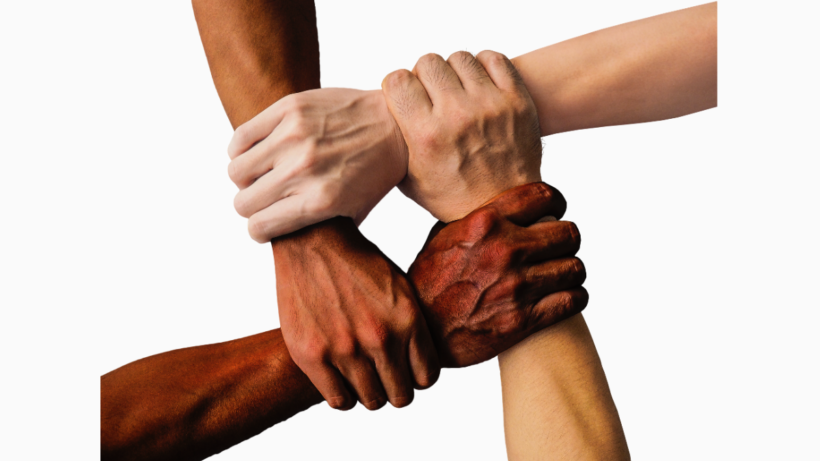It’s common for organizations to want to diversify their teams. However, it is not as common for those same organizations to immediately foster an authentically diverse workplace. In these cases, we see that impact does not always match intention. To better understand how to build diversity in teamwork, let’s take a step back and ask ourselves why organizations struggle with diversity in the first place.
Hiring managers across the board look to hire professionals who will mesh well within the organization. And despite concerns surrounding diversity, making sure that an employee is a good fit is always an important consideration. To maintain a balance between a cohesive workplace and discouraging monotony, here are some tips on upholding diversity in teamwork.
Tip #1: Consider how a Potential New Employee fits your Organization’s Vision of Thought Diversity.
Because we want new hires to fit in with our teams, employing the same types of candidates is an easy mistake. Take alumni networking, for example. Asking internally for your co-workers to seek out potential candidates within their alumni network is an excellent way to meet new people. However, recruiting too heavily from the same handful of colleges and universities may result in hiring candidates that research, think, and speak incredibly similarly to one another.
Too much of a good thing might not yield the best outcomes and hiring from the same pool of qualified candidates is no exception. Journalist Rick Bowers agrees. His article, titled The Importance of Diversity of Thought, discusses how thinking on the safe side does not change the world. He affirms that teams willing to go against the grain are more likely to change the world than those keener on playing it safe.
Tip #2: Think About Diversity as a Necessary Condition to a Profitable Bottom Line.
Rick Bowers recognizes the need for different types of people to be engaged in a conversation to create the type of environment where great ideas are fomented. When considering the diversity of thought within your teams, your organization should consider the race, geographical location, sexual orientation, gender identification, religion, etc. of potential new employees. The more that hiring managers prioritize visibility and representation during recruitment, the more likely they are to encourage thought diversity and innovative conversations.
In a 2018 article, Forbes contributor Anna Powers cited a study by the Boston Consulting Group (BCG) about the implications of diversifying organizational leadership. The study found that “increasing the diversity of leadership teams leads to more and better innovation and improves financial performance.” The study’s results demonstrate how diversity is not only necessary for broadening representation and visibility, but that it is also a critical condition for your organization’s bottom line.
Tip #3: Diversity Needs to Trickle Down.
Any organization looking to become more diverse cannot do so without active participation from its leadership. Your company’s executives need to view diversity as a top priority, as much as they would any other promoted initiative. If they do not see a lack of diversity as a problem, it will be difficult for hiring managers and other leaders to seize momentum.
Since executive-level professionals rarely administer the hiring process, it is equally vital for team leaders to understand how to build a diverse workplace. Team leaders should encourage greater visibility and representation on their interview panels and at recruiting events. Qualified candidates want to work for organizations where they trust that they will feel represented and heard. The more that candidates see people like themselves during the hiring process, the more likely they will see themselves successfully assimilating into your organization.
If you are still struggling to diversify your new hires, turn your attention to your organization’s job descriptions. Relaxing mandatory requirements may increase your number of eligible candidates, and as a result, increase diversity. Advocating for minor tweaks to how you screen your new candidates can still fulfill background check requirements without alienating potential candidates.Some credentials that may not measure a candidate’s potential at your organization include degree requirements, years of work experience, and a set number of professional references.
About Bo Parfet
Bo Parfet is the co-founder and chief executive officer of Denali Venture Philanthropy, an “impact investment” organization. Denali Venture Philanthropy helps social entrepreneurs who share Bo’s commitment to fostering positive change in the global community. The organization allows Bo to bridge his finance background with his family legacy of philanthropic commitments.
Before co-founding Denali Venture Philanthropy alongside his wife, Meredith, Bo worked for J.P. Morgan Chase as an investment banker in corporate finance. While working at J.P. Morgan, Parfet began his quest to conquer the Seven Summits, which he completed in 2007 after climbing Mount Everest. Today, Bo lives in Boulder, Colorado & St. Augustine, Florida, with his wife and children.
Laila Azzahra is a professional writer and blogger that loves to write about technology, business, entertainment, science, and health.
